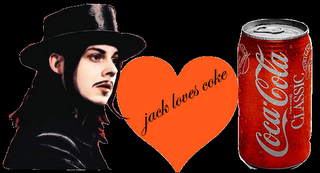 Twelve years after his death, Bill Hicks’ popularity continues to grow. With the recent releases of a DVD and a biography, interest in the late comedian has risen far beyond anything from when he was alive. Some of his fans even consider him as something of a prophet. So why is there such a fascination with a man who when he died was still relatively obscure? Welcome to the cult of Bill Hicks…
Twelve years after his death, Bill Hicks’ popularity continues to grow. With the recent releases of a DVD and a biography, interest in the late comedian has risen far beyond anything from when he was alive. Some of his fans even consider him as something of a prophet. So why is there such a fascination with a man who when he died was still relatively obscure? Welcome to the cult of Bill Hicks… (Click here to download a printable version of this article)
“It’s great to be back here. Wherever the hell I am, I always have a great time when I’m here.”
This year has seen the release of
Relentless, a DVD of one of his live shows, and
Agent Of Evolution, a biography by his childhood friend Kevin Booth. These releases highlight the fascination with the controversial comedian that has continued to grow since his untimely death from pancreatic cancer in 1994 at the age of just 32.
“I have been a comedian for a long time, so forgive me while I plaster on a
fake smile and pile through this shit one more time.”
Hicks performed his first gig when he was 13; at 17 he was a regular performer at the Comedy Workshop in Houston, Texas, while he was still at high-school. He spent the 1980s touring across America, regularly performing more than 250 shows a year. In the late 80s he made regular appearances on Tonight With David Letterman before finding international success in the early 90s.
“I don’t do drugs anymore... than say the average touring funk band.”
This may seem like a normal career path for a comedian, but Bill Hicks was anything but a normal comedian. His views on abortion and attacks on pro-lifers caused his final performance on Letterman to be axed as it was felt that his material wouldn’t go down well with the shows sponsors.
“If you’re so pro-life, do me a favour: don’t lock arms and block medical
clinics. If you’re so pro-life, lock arms and block cemeteries.”
Abortion, the Gulf War, the L.A. Riots, religion, smoking, guns, drugs, and pornography: nothing was sacred as far as Hicks’ comedy was concerned.
“A lot of Christians wear crosses on their necks. Do you think that when Jesus
comes back he wants to see a fucking cross?”
His vitriolic critiques of American society meant that he never had massive success in the States, confining him to the small club circuit for over a decade. Hicks even named one of his tours ‘The Flying Saucer Tour’ as “like UFOs, I too will be appearing at small Southern towns”. However, his seemingly anti-American stance caused his popularity to soar when he toured Europe in the early 90s, playing to appreciative crowds, culminating in the career defining sold-out performance at the 2,000 seat Dominion Theatre in London, which was recorded for Channel 4 and is available on the
Totally Bill Hicks DVD. As writer Eric Bogosian said of Hicks, “There’s this sort of tornado moving around the stage and cycling around and throwing all this energy at you”.
(Sarcastically)“There is no connection, and you would be a fool and a communist
to make one…between having a gun and shooting someone with it and not having a gun and not shooting someone with it.”
Hicks was arrogant and confrontational and this was certainly part of his appeal. People love an outsider, an angry young man, but with Hicks his performances were much more than stand-up comedy. Many fans have compared Hicks to a preacher, even a prophet, and it is clear when you watch his shows that he is a naturally gifted performer. Hicks sought enlightenment and wanted to awaken his audiences from what he saw as the hegemonic devices of capitalist America. As Hicks said, “As long as one person lives in darkness then it seems to be a responsibility to tell other people”.
“I smoke. If this bothers anyone, I recommend that you look around the world
that we live…and shut your fucking mouth.”
Despite his venomous attacks on American society, Hicks did not hate people; what he hated was the ways in which the government and multinational corporations had created an apathetic and docile society. He attacked manufactured pop stars, calling performers like Vanilia Ice “ball-less, soul-less suckers of Satan’s cock”. He labelled television as “Lucifer’s dream box” and said that watching it was “like spraying black spray paint into your third eye”. And he famously told people in marketing and advertising to “kill themselves”.
This may be the reason why Hicks popularity continues to grow after his death. The world we live in today is dominated by manufactured pop stars, barrel-scraping ‘reality’ television shows, and we are saturated by advertisements on a daily basis. As Tracy, a fan from the UK commented on an
article that marked the 10th anniversary of his death:
“Bill Hicks comments on society are as relevant today as they were when he first spoke them…I believe he certainly provoked and challenged and that’s why he is remembered today.”
When you listen to his passionate critiques of the Gulf War, the comparisons between what he said about Bush Senior and the behaviour of Bush Junior a decade later are extremely poignant.
“A war is when two armies are fighting. So you see, right there, I think we can
all agree it wasn’t exactly a war.”
Maybe it is because people are more cynical today that Hicks’ humour is given such value. And it can be argued that this cynicism is a result of the post-9/11 world that we live in. For many fans watching a George W. Bush speech on the news, there is a longing for Hicks to be alive so that we could hear what he would have to say about the antics of Bush Junior. As
Neil, a fan from Thailand states:
“It really is a shame that Hicks isn’t around to see how his targets have grown in influence. From Bush’s war and vested corporate interests to the religious right, all of them riper than ever to be on the receiving end of Hicks’ quick-fire wit and venom.”
Although much of his comedy is still relevant today, for some who are less passionate about his work, his continued popularity is seen as a result of his early death, what some would term the ‘Princess Diana syndrome’. UK comedy writer Tirmandra Harkness says that Hicks’ longevity is a result of “the fact that he died tragically young and therefore retains the seductive perfume of unfulfilled promise”.
“All our beliefs are being challenged now, and rightfully so – they’re stupid.”
Yes, some of Hicks' mystique does come from the fact that he died young. And as a result he has become
canonised by some of his
fans alongside great musicians such as
Jim Morrison,
Jimi Hendrix and
Kurt Cobain who all died young. Some consider him a genius, some consider him as one of the greatest comedians ever. There certainly seems to be no-one as passionate or as controversial as Hicks around today.
Chris Rock may come close, but he does not quite have the same sense of authority that Hicks had.
“I hate patriotism. I can’t stand it…It’s a round world last time I checked.”
That authority may be posthumous and yes, it is impossible to view Hicks' career objectively after his death. Nevertheless, it is a combination of his humour still being relevant today and his early death that causes the cult of Bill Hicks to continue to grow. For many fans there is a sense of sadness in the fact that he is not alive today to vent his anger at an increasingly fractured world, yet there is also relief in listening to a man passionately articulating the frustrations that many of us feel today. The fact that what he was saying is over a decade old but is still strikingly relevant is what causes Hicks’ reputation to continue to grow.
“We are the facilitators of our own evolution.”
However, it doesn’t matter if Bill Hicks is regarded as a genius or the greatest comedian ever: what matters is that like Jim Morrison, like Jimi Hendrix and like Kurt Cobain, Bill Hicks spirit lives on through the love of his fans. Hicks last words, read at his memorial by his brother, were:
“I left in love, in laughter, and in truth, and wherever truth, love and laughter abide, I am there in spirit.”To his fans this will always remain true.
Want more Bill Hicks?
Watch this:
Totally Bill Hicks
Read this:
Love All the People
Listen to this:
Rant in E-Minor

















